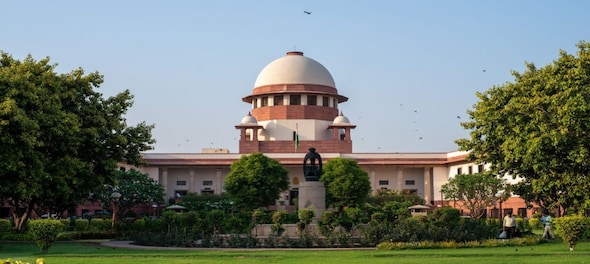
The Delhi government on Friday (November 10) filed its reply to the Supreme Court (SC) saying cabs registered in other states are required, the absence of which may lead to mobility issues in the National Capital.
The Arvind Kejriwal government also batted strongly for the odd-even scheme, saying it decongests roads to make a difference in air quality. It cited two studies that suggest improved air quality after the scheme's implementation.
"Don't try to not perform and then shift the burden onto the court," the Supreme Court told the AAP government in its submission that it will finalise policy on odd-even after the apex court’s order.
The apex court clarified that it merely asked for clarity on the efficacy of the scheme and not directed its implementation on taxis. "Did we ever direct you to do it?" the court asked.
On Thursday, Uber wrote to the Delhi government clarifying that all its 70,000 cabs in Delhi NCR operate on clean fuels like CNG and electric power, unlike private taxis. It argued that restrictions on CNG-fueled cars, even those registered in other states and operating in Delhi, will force people to move to petrol or diesel vehicles.
Citing the move as unnecessary, Uber said banning non-Delhi-registered cabs is akin to a mobility lockdown in the Union Territory (UT). It also advised the government to focus on other sources of pollution, given the fact that four-wheelers produce only 2% of the pollution, as per Delhi Tech University (DTU).
The apex court also observed that total vehicular pollution adds up to 17%, as per the Delhi government's study, leaving the impact of this scheme at only 13% to 17% of the air quality.
In its November 7 hearing, the SC suggested that the Arvind Kejriwal-led government consider allowing only Delhi-registered cabs in the city. The apex court noted that cabs registered in Uttar Pradesh and Haryana also operate under Uber and Ola in Delhi.
The apex court's intervention in the pollution issue comes after Delhi's air quality fell into the "severe" category for several days leading several localities to record an Air Quality Index (AQI) above 450.
The concentration of PM2.5—fine particulate matter capable of penetrating deep into the respiratory system and triggering health problems—is exceeding the government-prescribed safe limit of 60 micrograms per cubic metre.
Also Read:Consider allowing only Delhi registered cabs in the Capital city, Supreme Court tells Kejriwal govt
(Edited by : Ajay Vaishnav)
First Published: Nov 10, 2023 4:13 PM IST
Check out our in-depth Market Coverage, Business News & get real-time Stock Market Updates on CNBC-TV18. Also, Watch our channels CNBC-TV18, CNBC Awaaz and CNBC Bajar Live on-the-go!


BJP is planning to ban RSS, says Shiv Sena (UBT) chief Uddhav Thackeray
May 18, 2024 8:01 PM
Punjab Lok Sabha elections: Complete list of Congress candidates
May 18, 2024 4:08 PM
Punjab Lok Sabha elections: Check full list of AAP candidates and constituencies
May 18, 2024 12:59 PM
PM Modi, Rahul Gandhi election rallies in Delhi today: Here are the routes to avoid
May 18, 2024 11:28 AM

